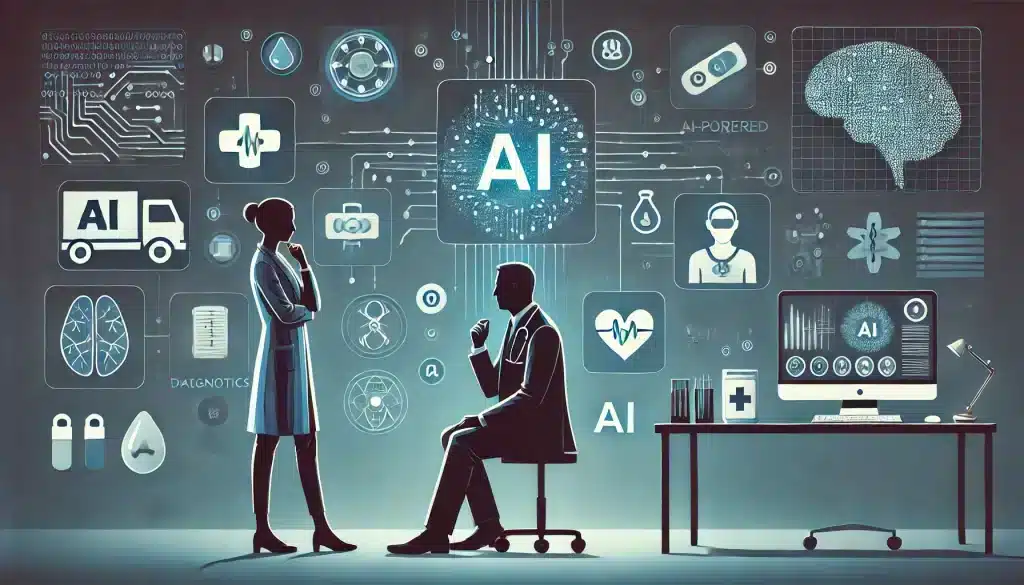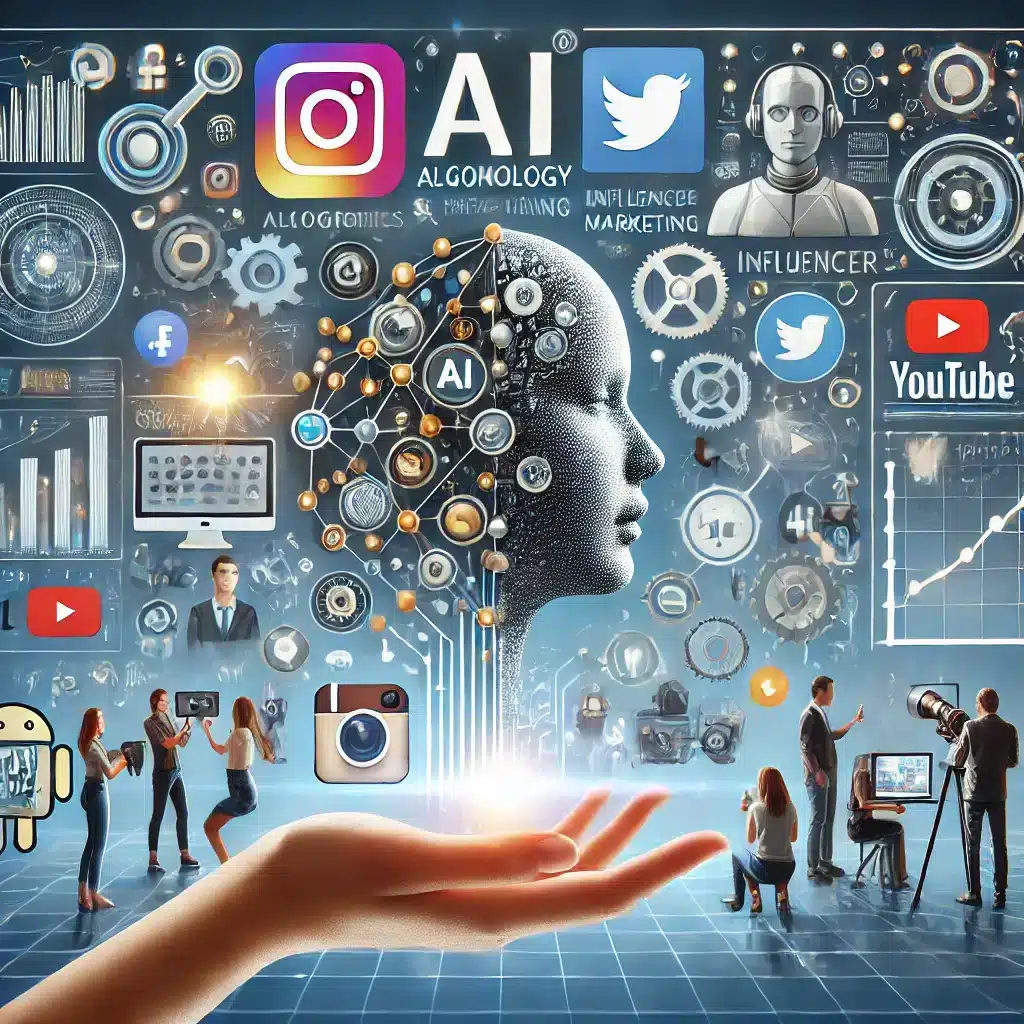In today’s fast-paced digital landscape, businesses must adapt to meet their customers’ evolving expectations. Multichannel customer service has emerged as a vital strategy for engaging customers across various platforms, and the integration of Artificial Intelligence (AI) is revolutionizing this approach. Adding AI to this mix has undergone a dramatic transformation in this strategy. Here’s an explanation of the importance of multichannel customer service, the role of AI in this context, challenges, and best practices for a successful integration.
What is Multichannel Customer Service and Why is AI Integration Important?
Understanding Multichannel Customer Service
Multichannel customer service means the support given to the customers by the business using many channels like e-mail, social media, chat, and phone. This is the approach that has enabled businesses to give the customers what they prefer but to ensure that no matter what medium they use, the experience will be seamless. The touchpoints developed on all these platforms are of help in developing customer satisfaction and engagement levels, thereby increasing loyalty and sales. However, they pose a management challenge regarding consistent messaging and quality support in such channels. Hence, AI integration is important for management purposes.
The Role of AI in Customer Service
AI goes on to effortlessly transform the role of customer service through automated processes and data analysis. AI enables communication between businesses and customers. The applications of AI technologies, including natural language processing and machine learning, enable companies to better know how their customers behave and what they prefer. This leads to better customer experience where inquiry-related responses are faster and interactions are more personalized. AI is not only operationally efficient but also empowers the insights customer service agents make, enabling more informed decisions toward improving the quality of services.
Benefits of AI Integration in Multichannel Strategies
There are many benefits to integrating AI into multichannel customer service strategies. For one, it can help to streamline tasks by automating simple business tasks such as answering frequently asked questions and correctly directing customers to relevant resources, thereby freeing human agents to focus on problems that require attention and personal handling. Furthermore, AI would be able to analyze vast amounts of customer data across all channels to determine patterns and preferences that influence marketing strategy. A third direction for AI-enabled tools is the power of being able to gain real-time insights into customer interactions that allow businesses to alter their methods immediately. Generally, AI integration does not only increase the operating efficiency but will dramatically improve the experience of customers with several channels.
How Can AI Improve Customer Engagement Across Different Channels?
AI-Powered Chatbots and Their Impact
AI in customer service is one of the most visible applications via AI-based chatbots. These virtual assistants can communicate with customers in real-time, immediately responding to questions posed and helping users find their way through sales processes. As the chatbots learn from the machine learning algorithms and improve their response with a bit of touch, this means that their answers become more accurate and relevant over time. This only increases customers’ engagement while conversion increases because customers receive the support they need at the right moment.
Personalization Through AI Analysis
AI can help a company personalize interaction between different channels in analyzing customer data. With the ability to know every customer’s individual tastes and preferences, previous purchases, and web browsing habits, a company can develop communication strategies that adapt to the needs of all these unique persons. This level of personalization will lead to stronger customer relationships and will encourage consumers because of their value and knowledge of feelings. Customized recommendations can further strengthen a shopping experience and add to higher sales and retention rates.
Real-Time Customer Insights and Feedback
AI integration also enables real-time collection and analysis of customer feedback across multiple channels. Businesses can continuously monitor the sentiment and levels of customer satisfaction to respond to issues in time and change strategies to adapt to issues. This will go a long way in identifying problems before they manifest and will, indeed, enhance overall customer engagement because the company values opinions about customers. By utilizing these results, business organizations can enhance their strategies for the multi-channel approach to produce excellent customer service.
What Problems Does AI Face When Implemented in Multichannel Customer Service?
Technical Integration Issues
Despite all these advantages, the implementation of AI into multichannel customer services is not an easy process. A technical integration of AI tools into legacy systems forms one of the major challenges. Companies would face compatibility problems between legacy systems and new AI technologies, which may affect consistent communication across different channels. It also becomes important for the solution to integrate well into CRM systems, a communication platform, and other working tools, bringing a unified picture for the strategy of customer service across different channels.
Data Privacy and Security Concerns
Data privacy and security are the other challenges. While businesses have to collect a lot of information about their customers and analyze it, they have to keep confidential such information for better mutual trust and as requested by the GDPR. Real measures of security and very honest transparency about the use of data have to be implemented. As a result, businesses must balance their use of customers’ data for personalization concerning their privacy to have them continue to exercise confidence in their brand.
Managing Customer Expectations
An important challenge, in integrating AI with multichannel customer service is that of managing customer expectations. AI can respond much quicker than any human. However, does the customer still expect some sort of empathy or understanding that a human agent can offer? Business needs to adopt the AI as an augmentation of human service rather than its complete replacement. Educating customers about the role of AI in their interactions and setting realistic expectations may help to ease a little of the dissatisfaction that arises.
How to Choose the Right AI Tools for Multichannel Customer Service?
Evaluating AI Capabilities and Features
Serious evaluation of which AI tools can serve is the right choice for enhancing the service of multichannel customer approach. Tools must offer flexibility and scalability with easy use. Features such as natural language processing, machine learning, and analytics capabilities will stand as the foundational elements of delivering personalized and efficient customer experiences. Also, choosing tools that fit integration with existing systems can make implementations smoother as well as a painless transition.
Cost Considerations and Budgeting
Cost-effective, AI selection is critical as well. Businesses must think about what investment they are going to make, and what return on investment might it generate. Some AI may be very costly to activate with great one-time costs, while others would give subscription-based models that are capable of matching up with the ongoing needs for operations. Getting budgeting for AI integration will consider not only one-time costs but also long-term advantages of more efficient customer service and higher engagement.
Integration with Existing Systems
Lastly, the ability of the chosen AI tools to integrate with existing systems is vital for a successful implementation. Businesses should evaluate how well the AI solutions can work with current CRM systems, support platforms, and communication tools. A seamless integration ensures that customer data flows smoothly between systems, enabling businesses to provide consistent and informed support across all channels. Additionally, this integration allows for better tracking of customer interactions, which is crucial for refining multichannel strategies.
What Are Some Best Practices for AI Integration in Customer Service?
Training Staff for AI Utilization
To achieve maximum advantages, business organizations need to train their employees on the usage of AI tools to maximize the benefits offered by AI. Employees must be aware of the scope of AI and how to work with AI while working towards producing insights created by AI to help improve customer interactions. Normal training sessions and workshops would help employees adapt to new technologies so that they become fully equipped to provide excellent service in a multichannel environment.
Monitoring AI Performance and Customer Satisfaction
Such performance monitoring of the AI tool is necessary for its performance to meet those customer expectations and needs. Businesses must develop metrics in terms of response time, scores from measuring satisfaction from customers, and resolutions about issues. Constant assessments enable a company to know which areas need improvement and subsequent adjustments are possible that maximize the performance of its AI system. Customer opinions about AI usage are one way of gaining insight into ways of improving service quality.
Continuous Improvement and Updates
Finally, continuous improvement is a key component of successful AI integration in customer service. Organizations need to be agile and open to innovations like new features of AI and updates that can improve their multichannel strategies with an advance in technology. Updating AI tools and processes would make organizations remain aggressively competitive and keep in pace with dynamic customer needs. Innovation and flexibility culture welcomes the adaptation of AI to continue upgrading the experience of the customer across all channels.




